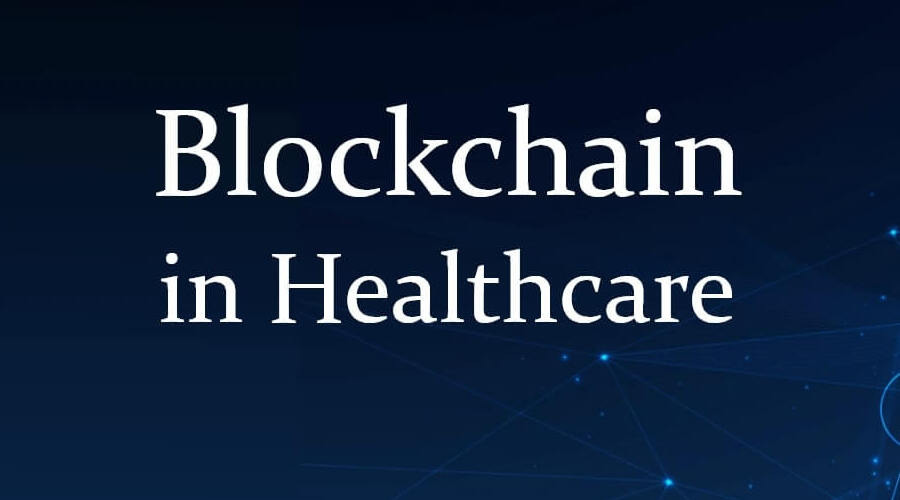In today’s digital age, identity management and data security have become paramount concerns, particularly in the healthcare industry. The sensitive nature of patient information necessitates robust measures to protect privacy, ensure data integrity, and facilitate secure access. One promising technology that holds great potential for addressing these challenges is blockchain Technology. This decentralized and immutable ledger system offers a secure and transparent framework for managing identities and sharing health-related data. In this blog post, we will explore the intersection of identity management and blockchain Technology in healthcare, highlighting the benefits, applications, and potential challenges associated with this innovative approach.
Understanding Identity Management in Healthcare
Identity management plays a crucial role in the healthcare industry, ensuring accurate identification and authentication of patients, healthcare professionals, and other stakeholders. It involves the processes and technologies used to securely manage and control digital identities and access to healthcare systems and services. Understanding identity management in healthcare is essential for ensuring data security, privacy, and seamless care delivery. Here are some key aspects to consider:
1. Patient Identification and Authentication
Accurate patient identification is vital for delivering safe and effective healthcare. Identity management systems in healthcare employ various methods such as unique patient identifiers, biometrics, or smart cards to accurately identify and authenticate patients. These systems help prevent medical errors, ensure proper patient record matching, and protect patient privacy.
2. Provider Authentication and Authorization
Healthcare providers, including doctors, nurses, and administrative staff, require secure and reliable identity management systems. These systems authenticate and authorize provider access to electronic health records (EHRs), medical devices, and other healthcare systems. Robust authentication mechanisms such as passwords, two-factor authentication, or biometric identifiers help ensure that only authorized individuals can access patient data and perform clinical tasks.
The Basics of Blockchain Technology
Blockchain technology, best known as the underlying technology behind cryptocurrencies like Bitcoin, offers a decentralized and tamper-resistant approach to data management. In essence, a blockchain Technology is a distributed ledger that maintains a continuously growing list of records, or blocks, which are cryptographically linked together. Each block contains a timestamped transaction record that cannot be altered retroactively without consensus from the network participants. This inherent immutability and transparency make blockchain an attractive solution for identity management and data security in healthcare.
Benefits of Blockchain in Identity Management

- Decentralization and Security: Blockchain Technology operates on a decentralized network, eliminating the need for a central authority. This enhances security by reducing the risk of a single point of failure and unauthorized data alterations.
- Data Integrity and Immutability: Once data is recorded on the blockchain, it becomes immutable. This ensures the integrity of identity data, preventing unauthorized changes or manipulations.
- Enhanced Privacy and Control: Blockchain technology enables individuals to have greater control over their digital identities. Users can choose what information to share, with whom, and for what purpose, enhancing privacy and reducing reliance on centralized authorities.
- Self-Sovereign Identities: Blockchain allows for the creation of self-sovereign identities, where individuals have complete ownership and control over their personal information. This empowers individuals and reduces the risk of identity theft.
- Simplified Identity Verification: Blockchain simplifies the identity verification process by providing a trusted and immutable source of identity data. This streamlines verification procedures, reduces administrative overhead, and improves user experiences.
- Interoperability and Portability: Blockchain-based identity management systems promote interoperability and portability of identities across different platforms and services. Users can use their blockchain-based identity across multiple applications, eliminating the need for redundant identity verification processes.
Applications of Blockchain in Healthcare Identity Management
Blockchain technology holds immense potential for transforming healthcare identity management. By leveraging the unique features of blockchain, the healthcare industry can enhance security, privacy, and interoperability in managing patient identities. Here are some key applications of blockchain Technology in healthcare identity management:
- Patient Identity Verification: Blockchain Technology can streamline the process of patient identity verification. By storing patient identities on the blockchain, healthcare providers can quickly authenticate patient information, reducing administrative burdens and enhancing patient experiences.
- Consent Management: Blockchain-based identity management systems enable patients to have greater control over their consent preferences. Patients can manage and selectively share their health information with healthcare providers or researchers, ensuring their privacy preferences are respected.
- Secure Medical Records: Blockchain technology can improve the security and privacy of medical records. Patient data stored on the blockchain Technology is encrypted and can only be accessed by authorized parties, reducing the risk of data breaches and unauthorized access.
- Interoperable Health Data Exchange: Blockchain Technology enables secure and auditable data sharing among different healthcare providers. By integrating identity management with blockchain, patient data can be shared seamlessly and securely across different systems, promoting interoperability and care coordination.
- Clinical Trials and Research Data Management: Blockchain Technology has the potential to revolutionize clinical trials and research data management. By integrating identity management with blockchain, researchers can securely access and share patient data for clinical trials while ensuring patient privacy and consent.
- Fraud Prevention and Patient Safety: Blockchain’s immutable ledger and decentralized nature make it difficult for malicious actors to manipulate patient identities or engage in fraudulent activities. This enhances patient safety and reduces the risk of identity theft or medical fraud.
- Supply Chain Management: Blockchain can improve the traceability and transparency of the healthcare supply chain. By integrating identity management with blockchain, stakeholders can track and verify the authenticity of pharmaceutical products and medical devices, ensuring patient safety.
Real-World Examples of Identity Management and Blockchain in Healthcare
Blockchain technology is being actively explored and implemented in various healthcare settings to enhance identity management and improve patient care. Here are some real-world examples of how identity management and blockchain are being utilized in healthcare:
- Medicalchain: Medicalchain is a blockchain-based platform that focuses on secure and accessible health records. It allows patients to have full control over their medical data and share it securely with healthcare providers. Through blockchain technology, patients can grant permissions and track access to their health records, ensuring data privacy and consent management.
- Gem: Gem is a blockchain company that has partnered with the Centers for Disease Control and Prevention (CDC) to develop a blockchain-based system for disease surveillance and identity management. The platform aims to securely manage patient identities and track the spread of diseases in real-time, improving public health response and resource allocation.
- SimplyVital Health: SimplyVital Health is a blockchain startup that focuses on enhancing care coordination and patient data sharing. Their platform utilizes blockchain to securely manage patient identities, consent, and health data exchange. The technology enables seamless sharing of patient information among different healthcare providers, facilitating collaborative care and reducing administrative burdens.
- MedRec: MedRec is a blockchain-based electronic medical record (EMR) system developed by researchers at MIT. It utilizes blockchain technology to enhance the security, privacy, and interoperability of medical records. MedRec allows patients to have control over their health data and selectively share it with healthcare providers, ensuring data integrity and patient privacy.
- Embleema: Embleema is a blockchain platform that focuses on patient-generated health data. It enables patients to securely share their health data with researchers and participate in clinical trials. Through blockchain-based identity management and consent mechanisms, Embleema ensures patient privacy and facilitates data exchange for research purposes.
- Nebula Genomics: Nebula Genomics is a blockchain-based genomic data platform that allows individuals to securely store and control their genomic data. The platform utilizes blockchain technology to ensure data privacy, consent management, and secure sharing of genomic information with researchers, accelerating advancements in personalized medicine.
These real-world examples highlight the potential of blockchain in identity management and healthcare. By leveraging blockchain technology, these platforms address challenges related to data security, privacy, interoperability, and patient consent, ultimately leading to improved patient care and research outcomes. As the technology continues to advance, we can expect to see more innovative applications of identity management and blockchain in healthcare.
Conclusion
Identity management and blockchain hold great promise for revolutionizing the healthcare industry. By integrating these technologies, healthcare organizations can strengthen security, enhance data sharing, and empower patients. However, challenges such as scalability, regulatory compliance, and data accuracy need to be carefully addressed. As the industry continues to explore and adopt these technologies, we can expect a future where patient data is securely managed, interoperability is improved, and patient-centric care becomes the norm.
FAQs
Q1: How does blockchain technology ensure the security of healthcare data?
Blockchain technology ensures the security of healthcare data through its decentralized and immutable nature. The distributed ledger and cryptographic mechanisms make it extremely difficult for malicious actors to tamper with or gain unauthorized access to patient data.
Q2: Are there any privacy concerns associated with integrating identity management and blockchain in healthcare?
While blockchain offers enhanced security and privacy through encryption and decentralized storage, privacy concerns still exist. Care must be taken to ensure compliance with data protection regulations and to implement robust consent management mechanisms.
Q3: How can blockchain enhance patient empowerment in healthcare?
Blockchain enables patients to have greater control over their health data. With self-sovereign identities and consent management mechanisms, patients can selectively share their data and ensure that their privacy preferences are respected.
Q4: What are the main challenges in implementing identity management and blockchain in healthcare?
Scalability, regulatory compliance, and data accuracy are some of the main challenges in implementing identity management and blockchain in healthcare. Overcoming these challenges will require technological advancements, regulatory frameworks, and standardized data entry processes.
Q5: What are some potential future applications of identity management and blockchain in the healthcare industry?
Future applications of identity management and blockchain in healthcare include blockchain-based EHRs, improved supply chain management, telemedicine platforms, and decentralized clinical trials. These innovations have the potential to transform healthcare delivery and patient experiences.
